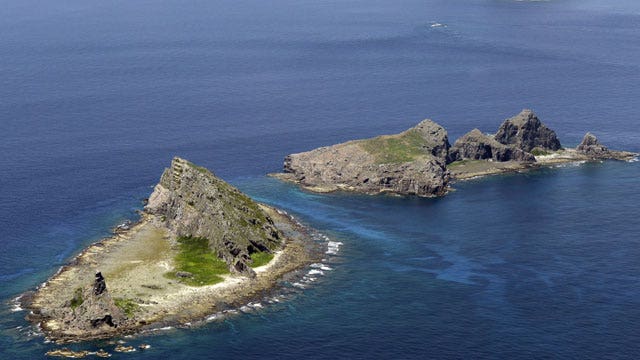The United States flew two B-52 bombers over the disputed Senkaku Islands as part of a training exercise on Monday night, further dipping a toe into the heated territorial fight between China and Japan.
A senior U.S. defense official, speaking on the condition of anonymity, described it as a "routine" flight that started and ended in Guam.
Although the flight path is routine for the U.S., there were much larger risks and implications involved in the exercise, called "Coral Lightning."
Over the weekend, the Chinese publicly designated the disputed island territory to be within its own Air Defense Identification Zone (ADIZ), meaning airspace that it controls.
That announcement was the latest in an ongoing war of words with the Japanese over ownership of the islands. And it elicited an angry response from the Japanese government. Japanese officials called the announcement a "profoundly dangerous" and "unilateral" act that has "no validity whatsoever." They also warned it "may cause unintended consequences."
White House spokesman Josh Earnest said Tuesday that China's new policy "is unnecessarily inflammatory."
"These are the kinds of differences that should not be addressed with threats or inflammatory language, but rather can and should be resolved diplomatically,'' Earnest said.
Earlier on Monday, U.S. defense officials said the Pentagon would ignore requests from the Chinese for U.S. aircraft to identify themselves when in that airspace.
The U.S. officially deems the Senkaku region as international airspace.
The two unarmed B-52 aircraft, which required aerial refueling to make the flight from Guam to the Senkakus and back, were not intercepted by the Chinese, nor did the Chinese attempt to communicate with them.
The uninhabited Senkaku Islands, located in the East China Sea stretching between Taiwan and Japan, have been disputed for decades. The territory is valued for its fishing and shipping lanes, but more recently China and Japan have expressed interest in tapping its potential oil wealth.
Last year, the Pentagon announced a new defense strategy that would "pivot" focus from the Middle East to Asia.





